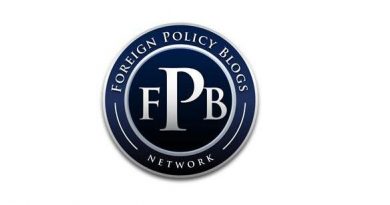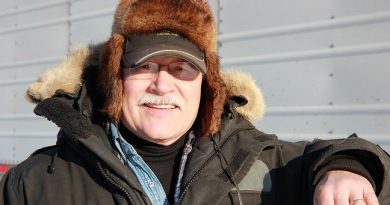Are the Inuit Under-Consulted on Arctic Issues?
Mary Simon, President of ITK, wrote on her blog last week that she learned of a new MOU between Denmark and Canada that will allow “Canada and Denmark to deepen cooperation in our respective Arctic regions, through enhanced consultation, information exchange, visits and exercises” through online news sources rather than direct consultation with the federal government. Simon subsequently remarked that “one would think that if the Government of Canada was entertaining the idea of entering into agreements with other countries to conduct military exercises in Inuit Nunangat that they would at least mention it to Canadian Inuit”.
Presumably Simon doesn’t have an issue with deeper cooperation with Denmark over Arctic issues, particularly as Denmark’s Arctic region is actually Greenland, a primarily Inuit, Self-Ruled territory. And she doesn’t seem to have a problem with Canada and Denmark conducting military exercises together in Inuit Nunangat; on April 26 she attended the closing ceremonies of Operation Nunalivut in Alert, at the invitation of the Canadian Ministry of Defense. The annual High Arctic operation included a Danish sled dog patrol team this year. What Simon seems to mind is Canada exercising its will on clearly federal prerogatives, including defense and foreign affairs, without first consulting Inuit.
This calls to mind the high profile disapproval demonstrated by Inuit at the lamentable Arctic 5 meeting held in Quebec in March. Although there were grumblings from Sweden, Iceland, Finland and the Arctic Council indigenous Permanent Participants regarding their exclusion in the weeks leading up to the meeting, Hillary Clinton blindsided Foreign Minister Lawrence Cannon by stating immediately before the meeting her disapproval with the small guest list. I am not sure how many times Clinton has met with Alaskan indigenous groups to discuss Arctic matters (although I would bet my first-born that it’s zero.) But Cannon has met fairly regularly with something called the Arctic Council Advisory Committee, a group composed of territorial governments and Arctic indigenous groups that DFAIT has organized to discuss Canada’s positions on circumpolar issues, and did so again a week before the A5 meeting. Still, Pita Aatami, a senior official with ITK, declared that “It is inconceivable that the Government of Canada would contemplate holding a conference to discuss economic development and environmental protection in the Arctic without the active participation of Inuit, who will have to live with the consequences of any new government policies. This reeks of paternalism.”
The Inuit are remarkably well-organized and politically influential in northern Canadian and circumpolar relations. Mary Simon herself was appointed Canada’s first Circumpolar Ambassador back in 1994 and spearheaded both the establishment of the Arctic Council in 1996 and the Northern Dimension of Canadian Foreign Policy in 2000. Canada actively lobbied for the Arctic Council to have a significant indigenous and sustainable development component to its mandate, something the Americans initially resisted but ultimately agreed to in order to assuage their northern neighbours. Canada has delayed the EU’s application for observer status in the Arctic Council over their ban on seal meat, a clear gesture of solidarity with the Inuit. And the Inuit Circumpolar Conference, the NGO representing Inuit from Alaska, Russia, Canada and Greenland, has been very influential in circumpolar and international indigenous affairs, with Sheila Watt-Cloutier nominated for the Nobel Peace Prize in 2007 as President of the ICC for her role in informing the global public about the effects of climate change on her people.
No doubt this Inuit political savvy can be attributed to decades of negotiations and hard work to establish self-determination in Greenland, Alaska, NWT (Inuvialuit), Nunavut, Northern Quebec (Nunavik) and Labrador. Their influence has only increased in the past few years: Greenland recently voted to change their status from Home Rule to Self Rule, increasing their governmental responsibilities. And the Harper government appointed Nunuvut MP Leona Aglukkaq, elected in 2008, as federal Minister of Health. Senior Inuit leaders from Canada, Alaska, and Greenland are in constant demand at conferences, meetings and other events around the world so they can be consulted with and inform southern audiences of northern realities.
The Inuit have earned every ounce of political influence they wield; no one is suggesting otherwise. But to complain that this indigenous group of only 55,000 Canadians (150,000 worldwide) is somehow ignored or disregarded is disingenuous. I can think of no other aboriginal group in Canada with as much power, influence, and public respect as the Inuit. They should not squander it on trivial complaints.



